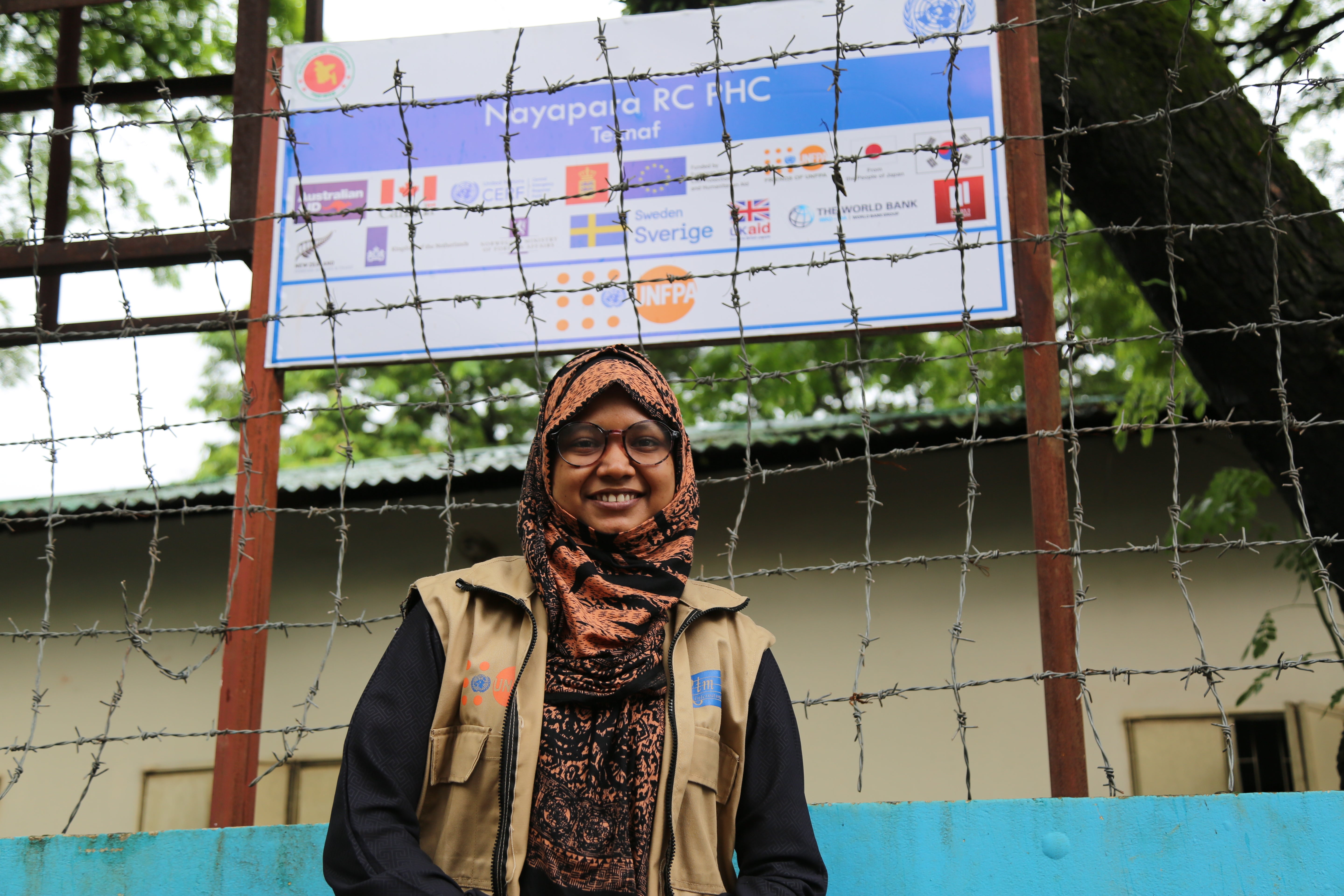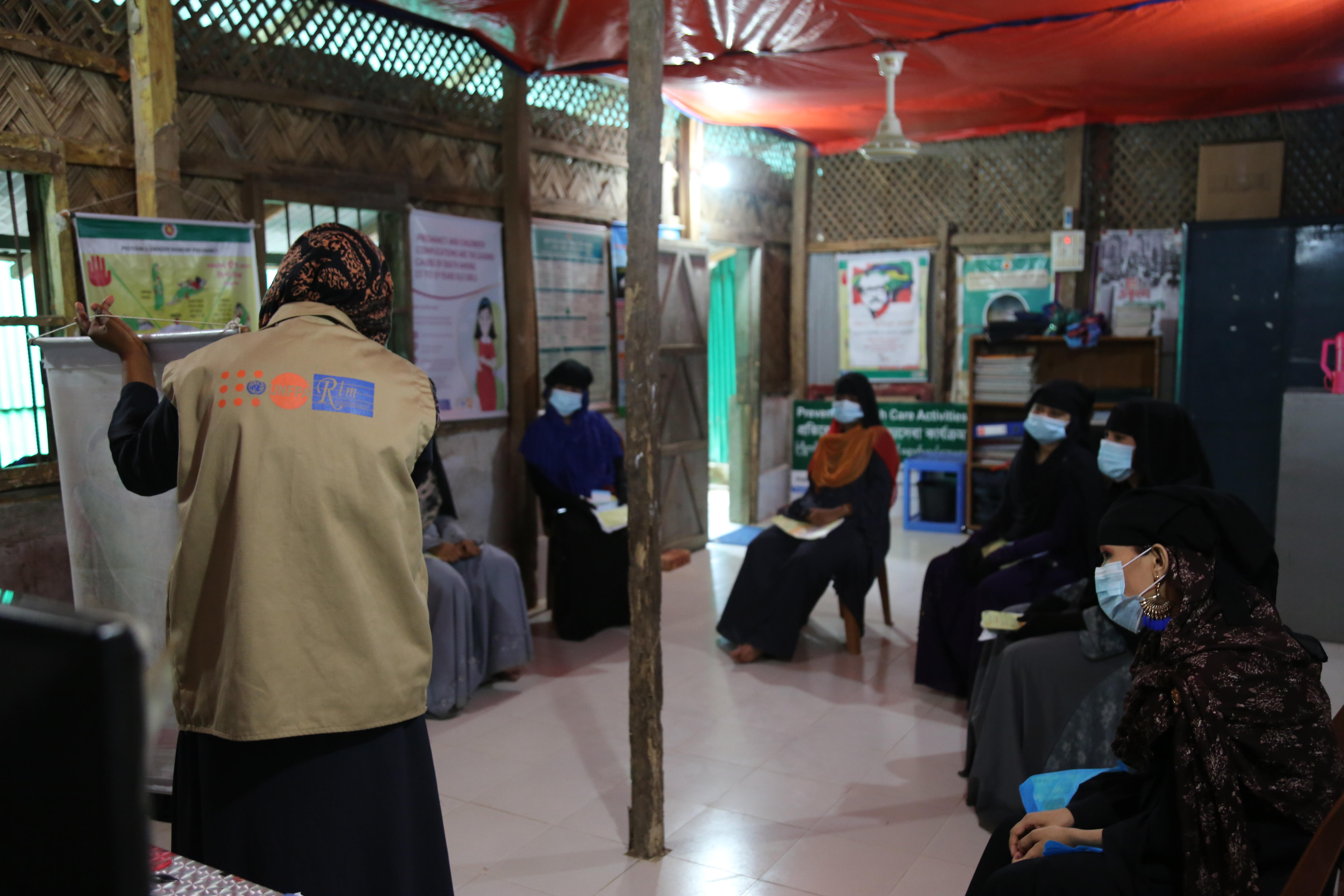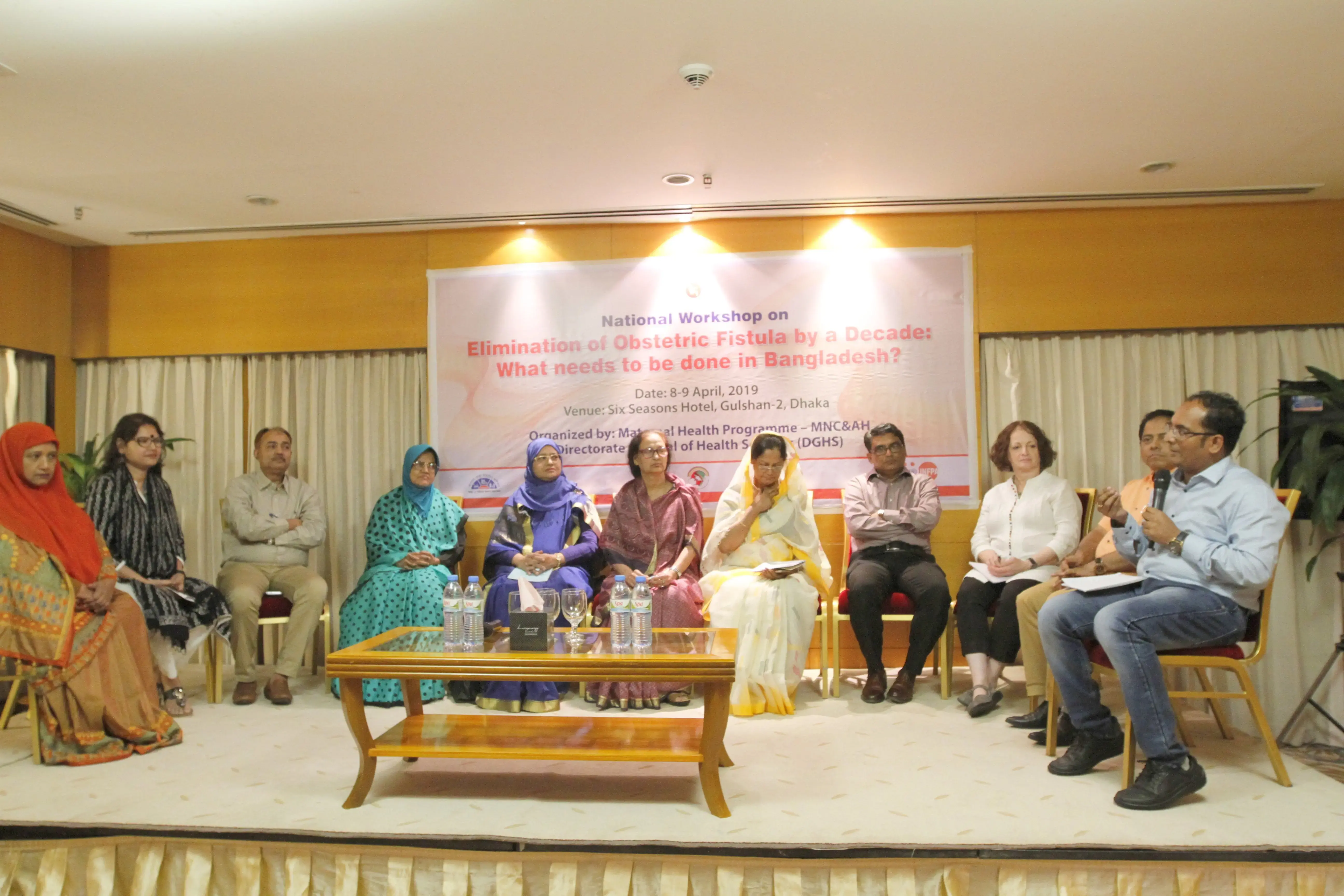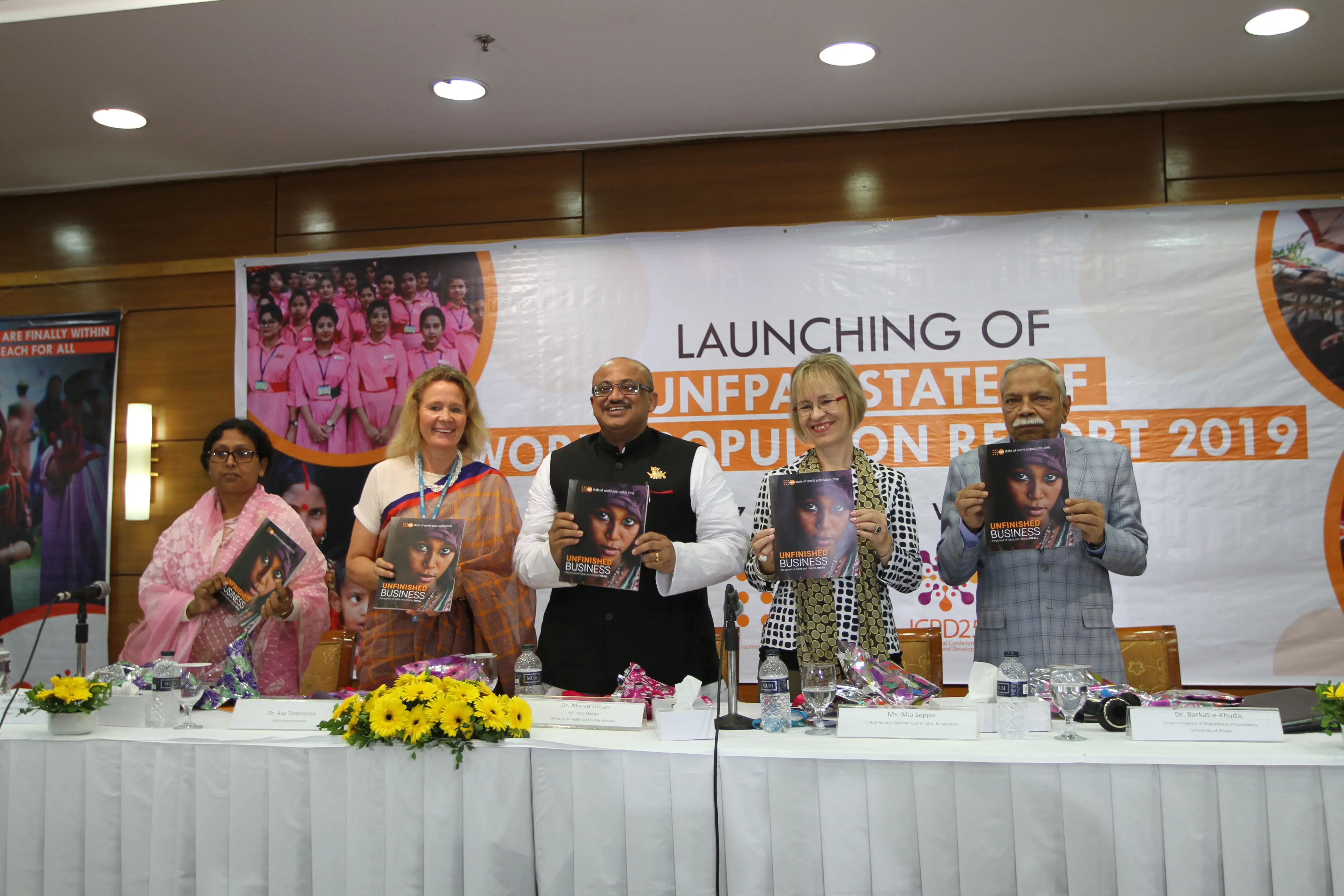In the Nayapara Rohingya camp in Cox’s Bazar, 8 girls sit in the Adolescents’ Corner of a health facility. Trembling simultaneously with nervousness and excitement, the girls circle around a health educator, Ms. Tania Aktar, who has brought along a special guest for her session today.
A midwife has been assigned with the difficult task of explaining to the girls present, what their future holds for them -- their future as adolescent mothers.
Adolescents under 18 years of age constitute 55% of the displaced Rohingya population in Bangladesh. Due to the prevalence of adolescent pregnancies and the lack of access to correct information about sexual and reproductive health in the refugee camps, many pregnant girls in the Rohingya community find themselves at high risk of life-threatening maternal health complications.
To address these dangers, UNFPA started the Young Mothers’ Support Group Programme in February 2019. With funding provided by the Government of Japan, the programme set out to provide information to pregnant adolescents between the ages of 16-19 that would enable them to take care of the health and well-being of themselves and their newborns, during and after pregnancy.

“The sessions we hold are mostly about educating young mothers on safe deliveries, family planning, birth spacing and antenatal and postnatal care. Through the networks of the young mothers, we also hope to cascade this knowledge to other members of the Rohingya community”, summarizes Ms. Tania Akter. Every two weeks, the pregnant mothers attend 8 sessions, where they are often accompanied by their family members, including their husbands. In the first year, 544 pregnant adolescents attended the 249 sessions held through the programme.
“The most fulfilling part of my job is to meet and weave relationships with young mothers and see the community learn about safe deliveries, family planning, and the services we provide. 96 % of deliveries are now done at health-facilities, thanks to the sensitization carried out during our sessions!” Tania says enthusiastically, as she lists the successes of the programme.
Due to the ongoing COVID-19 pandemic, there was a temporary halt in the programme between March 2020 - June 2020, but the sessions have resumed since July, with the required COVID-19 precautionary measures in place.
The resumption of the sessions will ensure that UNFPA can continue to provide a safe way to motherhood for Rohingya adolescents, ensuring a safe birth for everyone, everywhere.





